CATEGORIES
Categorías

EDWARD ASHTON
ASTRONOMER

(Don't) Fly Me to the Moon
WAS IT A CONSPIRACY? NOPE. BUT NO-MOONIES ARE SKEPTICAL ANYWAY.

A Six-Planet Solar System in Perfect Synchrony Has Been Found in the Milky Way
Astronomers have discovered a rare in-sync solar system with six planets moving like a grand cosmic orchestra, untouched by outside forces since their birth billions of years ago.

Are plants aware of themselves?
Sure, scientists noticed one of my special skills. But most people are still overlooking my epic poetry.

SUSTAINABLE AVIATION EXPERT
REDUCING AIRPLANES' CARBON EMISSIONS
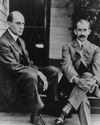
Two Brothers From Ohio
Most people do not realize that the Wright brothers—Wilbur, born in 1867, and Orville, born in 1871—performed various scientific experiments before inventing their aircraft. For as long as anyone in their hometown of Dayton, Ohio, could remember, the Wright boys had worked on mechanical projects.

THE TROUBLE WITH TRANSPORTERS
Quantum teleportation has been achieved. But can it work for people?

THE FORMULA FOR FLYING
Want to fly? Then you must balance these four forces.
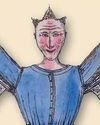
THE IDEA MEN
People dreamed of flying thousands of years before the Wright brothers found success near Kitty Hawk, North Carolina. These dreamers, such as Leonardo da Vinci, studied birds flying and imagined how humans might do the same—if only they had wings. Other men developed a more hands-on approach to the topic. Early inventors made wings of cloth, glue, and feathers and tied these creations to their arms in an attempt to imitate nature.
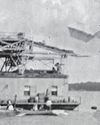
A Helping Hand
May 6, 1896. A group of people who had gathered beside the Potomac River, just south of the U.S. capital, grew quiet. Then, it erupted in cheers as a small, unmanned aircraft took to the skies and flew for more than half a mile. The flight came seven years before the Wright brothers’ first manned, powered flight. The inventor of the aircraft was Dr. Samuel Pierpont Langley.
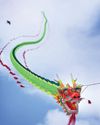
Silken Wings
Seven hundred years before the Wright brothers began experimenting with human flight, the Chinese had already mastered its secrets—with kites.

PTERO-SOAR
Tomorrow's High-Tech Aircraft May Use Secrets From the Days of the Dinosaurs!

GROWTH OF AN INDUSTRY
After their historic flight at Kitty Hawk in 1903, Wilbur and Orville Wright returned to Dayton, Ohio. They spent the next few years making adjustments and building additional versions of their powered aircraft in their bicycle shop.

PLANES Made of PLANTS
Scientists are looking for creative ways to reduce airplanes' carbon footprints by making them fly more efficiently and developing sustainable fuels. But what about the materials in the planes themselves?

The QUEST for QUIET, QUICK PLANES
Supersonic Flight Could Be Making a Comeback
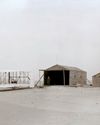
WHY KITTY HAWK?
The Wright brothers searched carefully for the best place to test their gliders and flying machines. Their main concern was for good, steady winds. But they also hoped to find a remote location to allow them to perform tests away from the public eye.
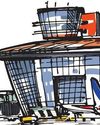
TAKING OFF
The Wright brothers expected airplanes to “take off,” but even they might be amazed at the way the airline industry has become big business. In the past, it was expensive to send something by plane.
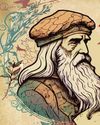
Da Vinci's 4 Designs
Have you ever wondered how a bird flies? Leonardo da Vinci (1452–1519) did. He thought that understanding how a bird flies would provide the key to human flight. So, what did da Vinci learn from birds?

TAKING OFF TOWARD A GREENER FUTURE
Efforts to make flying sustainable

Do You Really Want a Flying Car?
Close your eyes and imagine the future. Are flying cars whizzing through the air?

Envisioning the Future
Albert Robida had a fun but clear-eyed view of the future. Writing and illustrating at the end of the 1800s, he imagined what the year 2000 would look like. Who could picture the world more than a century in the future?

Balloons on a Mission
When scientists need to do research at the very edge of space, they skip the rocket ship and send a balloon instead.

No Flights of Fancy
Animal-inspired innovations for airplanes
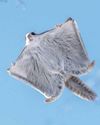
Airborne Animals
Humans have taken to the skies in balloons, gliders, and airplanes-but we're not alone among the clouds. Animals of all sorts have evolved to harness wind power.
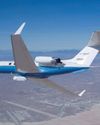
Eye in the Sky
An interview with Joe Piotrowski

"Addictive" Social Media Feeds That Keep Children Online Targeted by New York Lawmakers
New York would restrict the way online platforms like Instagram and YouTube can collect and share children's personal information and let parents keep their kids from being bombarded by "addictive" feeds from accounts they don't follow, under legislation proposed this week.

THE MISSION AT WAIILATPU
One fall day in 1831, four Nez Perce men arrived in St. Louis, Missouri. They sought a meeting with General William Clark. They had met Clark some 25 years before when he had explored the country with Meriwether Lewis and the Corps of Discovery.

Eyes on Oregon
The instructions President Thomas Jefferson gave his minister to France in 1802 were simple: negotiate the purchase of the port city of New Orleans from France.

WAGONS HO!
Oregon fever spread quickly in the early 1800s. The symptoms included restlessness, hunger for land, and a thirst for adventure. The cure was to get to Oregon Country as quickly as possible.

THE PATHFINDER
One man in particular provided information about the route to Oregon Country. He was explorer, soldier, and politician John Charles Frémont.